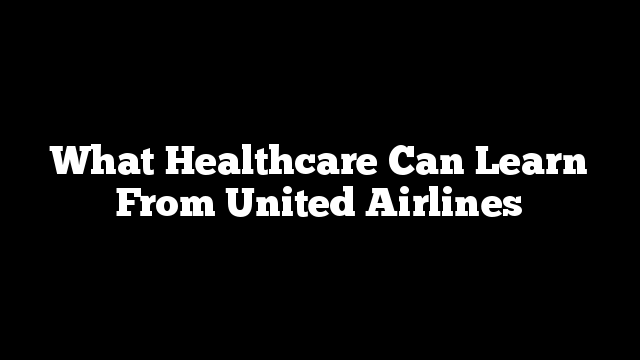 Obamacare repeal and replace is going nowhere, despite seven years of promises by Republican members of Congress. For the foreseeable future, it will remain the law of the land, along with rising insurance premiums and deductibles and fewer plans to choose from. It’s worth remembering the next time someone asks you for money to support Republican incumbents.
Obamacare repeal and replace is going nowhere, despite seven years of promises by Republican members of Congress. For the foreseeable future, it will remain the law of the land, along with rising insurance premiums and deductibles and fewer plans to choose from. It’s worth remembering the next time someone asks you for money to support Republican incumbents.
What if the airline industry could light the runway toward fixing one of the more onerous aspects of Obamacare? United Airlines has done just that. I don’t mean dragging patients out of hospitals and doctors’ offices as United did earlier this year on an airplane—a physician no less. Instead, United now offers a lower cost option for air travel. Let’s apply it to healthcare.
United recently began offering “basic economy” fares, a lower cost option, compared to its “standard economy” fare. Suppose healthcare insurance companies did the same.
Obamacare requires that all insurance plans cover 10 “essential benefits.” Some of these are common sense, including outpatient, hospital and emergency care. Others are beneficial to only some people—pregnancy, maternity and newborn care, mental health and substance-abuse treatment, and pediatric services.
A 60-year-old man doesn’t need or want pregnancy coverage. A middle-aged couple with adult children can pass on pediatric coverage. A teetotaler won’t want alcohol-rehab insurance. But all are forced to purchase this insurance they neither want nor need. That’s like making Coloradans purchase hurricane insurance.
United recognized that not all its passengers want the benefits that go along with the higher-standard economy fare. Instead, they offer travelers the option of a lower cost fare with fewer perks. For example, standard fares earn miles toward premier status on United, whereas basic fares do not. For frequent flyers looking to achieve higher premier status, this may be important. Not so for infrequent travelers or those who typically fly another airline. Why make them pay for it?
Another difference is that the basic fare doesn’t allow passengers to choose their seats or sit with their travel companions, unlike the standard fare. For a short flight, if you don’t care where you sit and are OK with your travel companion sitting in a different row, why not save your money?
The idea is that United is giving passengers a choice, offering an alternative to their more expensive fares, the airline equivalent of “essential benefits.” If passengers don’t want or need expensive perks, why not let them opt out and pay less?
An amendment along these lines was proposed by Sen. Ted Cruz during the recent Senate debate on Obamacare repeal and replace. His idea was that insurance companies could sell pared-down, less expensive plans, as long as they also sold at least one plan that provided all the benefits.
For United, that would mean they could sell basic economy fares if they still sold standard economy, economy-plus and first-class tickets. Common sense.
How absurd that the government should tell a business what it can and cannot sell, forcing consumers to purchase what the government commands. United, instead, is offering a discounted fare with fewer benefits that is better able to meet the needs and pocketbooks of many of its travelers.
This could be a stand-alone piece of legislation. Perhaps along with a law requiring Congress and their staffs to purchase Obamacare plans. A simple way to ameliorate one of the more bothersome aspects of Obamacare. Not the repeal and replace we were promised, but at least some relief for Americans struggling to afford ever more costly Obamacare insurance.
